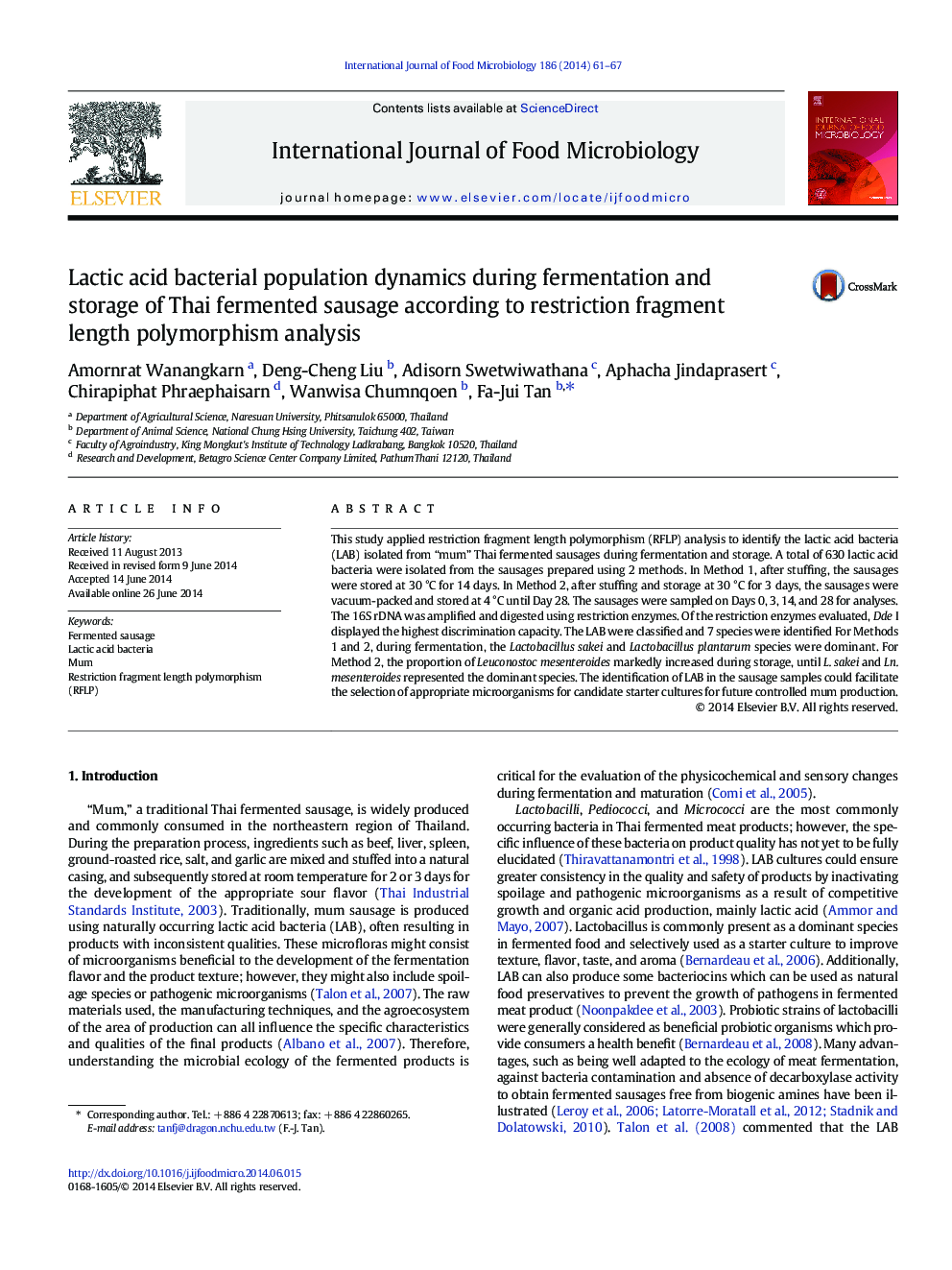| Article ID | Journal | Published Year | Pages | File Type |
|---|---|---|---|---|
| 6290035 | International Journal of Food Microbiology | 2014 | 7 Pages |
Abstract
This study applied restriction fragment length polymorphism (RFLP) analysis to identify the lactic acid bacteria (LAB) isolated from “mum” Thai fermented sausages during fermentation and storage. A total of 630 lactic acid bacteria were isolated from the sausages prepared using 2 methods. In Method 1, after stuffing, the sausages were stored at 30 °C for 14 days. In Method 2, after stuffing and storage at 30 °C for 3 days, the sausages were vacuum-packed and stored at 4 °C until Day 28. The sausages were sampled on Days 0, 3, 14, and 28 for analyses. The 16S rDNA was amplified and digested using restriction enzymes. Of the restriction enzymes evaluated, Dde I displayed the highest discrimination capacity. The LAB were classified and 7 species were identified For Methods 1 and 2, during fermentation, the Lactobacillus sakei and Lactobacillus plantarum species were dominant. For Method 2, the proportion of Leuconostoc mesenteroides markedly increased during storage, until L. sakei and Ln. mesenteroides represented the dominant species. The identification of LAB in the sausage samples could facilitate the selection of appropriate microorganisms for candidate starter cultures for future controlled mum production.
Related Topics
Life Sciences
Agricultural and Biological Sciences
Food Science
Authors
Amornrat Wanangkarn, Deng-Cheng Liu, Adisorn Swetwiwathana, Aphacha Jindaprasert, Chirapiphat Phraephaisarn, Wanwisa Chumnqoen, Fa-Jui Tan,
